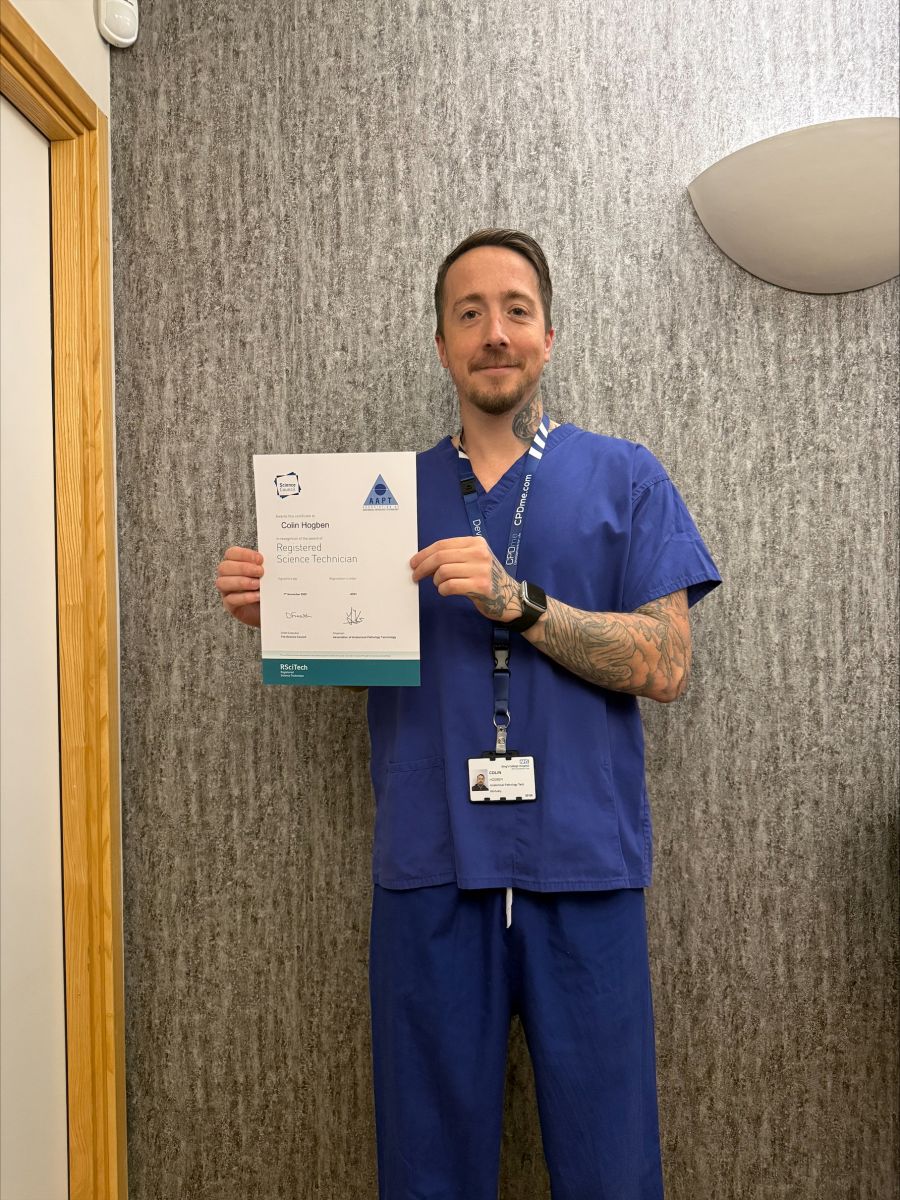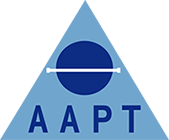News
Colin Hogben achieves the RSciTech award
Colin Hogben RSciTech MAAPT talks to the AAPT about his experience through the shortened route to registration with the Science Council

What motivated you for RSciTech registration through AAPT’s shortened route
I decided to go for RSciTech because I wanted proper recognition for the skills I’ve built up working in the mortuary. The shortened route made sense since I already had the experience and responsibilities that matched the criteria. For me, registration is a way of showing I’m serious about my career in healthcare science and that I’m committed to keeping high standards in the work I do every day.
How did your professional experience prepare you for the shortened application process
My role has given me plenty of experience that fits the RSciTech requirements. I support postmortems, handle specimens, and make sure infection control and safety procedures are followed. I also work closely with families and professionals, which has helped me develop strong communication skills. Because of this, I already had the evidence I needed to show competence across the different areas of the application.
What key steps did you take to compile the application portfolio
When I started the portfolio, I looked at the RSciTech competencies and matched them to what I do day to day. I pulled together training records, examples of audits I’ve been involved in, and evidence of specimen handling and safety checks. I wrote down clear examples of my work and linked them to the criteria. I also asked a colleague to check it over, which helped me make sure it was clear and covered everything properly.
Which part of the application was most challenging, and how did you address it
The hardest part was explaining routine tasks in a way that showed their importance. A lot of what I do is behind the scenes, but it still has a big impact. To deal with this, I gave specific examples, like how I’ve helped during complex postmortems or made sure infection control was followed correctly. By showing the outcomes of my work, I was able to prove how it meets RSciTech standards.
How did AAPT supported you during the application process
AAPT gave me useful guidance, like templates and documents that helped me structure my portfolio. I also found it helpful to hear from others in the network who had already gone through the shortened route. Their advice reassured me that my mortuary experience was relevant. The workshops and resources gave me confidence in how to present my evidence, especially for the more sensitive parts of my role.
What advice would you give to others considering the shortened route
I’d say the best approach is to look at your everyday work and match it to the competencies. Even routine jobs can be strong evidence if you explain why they matter. Start early so you’ve got time to gather everything, and use the support AAPT offers because it makes the process easier. Breaking the application into smaller steps also helps keep it manageable.
How will RSciTech registration impacted your career or professional credibility
Getting RSciTech has already made me feel more confident in my role. It shows that the skills I use every day meet national standards, and it gives me more credibility with colleagues and external professionals. It also supports my career progression by opening up opportunities to take on more responsibility and mentor new staff. Most importantly, it recognises the professionalism and technical expertise needed in my job.
